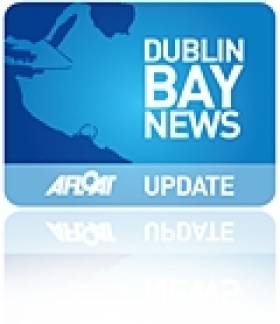Displaying items by tag: drilling of test boreholes
Drilling of Test Boreholes in Dublin Bay
The barge is contracted to Dublin City Council for the drilling of test boreholes in the approaches to and within Dublin Bay in relation to the Ringsend Wastewater Treatment Plant. Both jack-up barges 'Aran 250' and 'Excalibur' will be operating on a 24-hour / 7 days per week basis.
In attendence Sea Safari Tours RIB 'James Joyce', which normally operates as a tourist-sightseeing craft will act as a stanby boat during the rig operations. In addition a buoy will be positioned 300-metres of the barge during drill operations, which is expected to take approximately one week for each drill.
The project will also see the tug, Trojan providing supplies and to tow the jack-up rigs between locations in Dublin Bay. Both the James Joyce and the Trojan will be based out of the Poolbeg Marina, in the centre of the port.
Since the start of October, the project has also required the services of the yellow-hulled catamaran, Xplorer to carry out a bathymetric survey of Dublin Bay.
For further detailed information, please consult Notices to Mariners (No. 14 and 15) listed on the Dublin Port Company website by logging onto this link: http://www.dublinport.ie/information-centre/notice-to-mariners/
In addition to www.dublincity.ie





























































